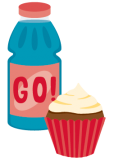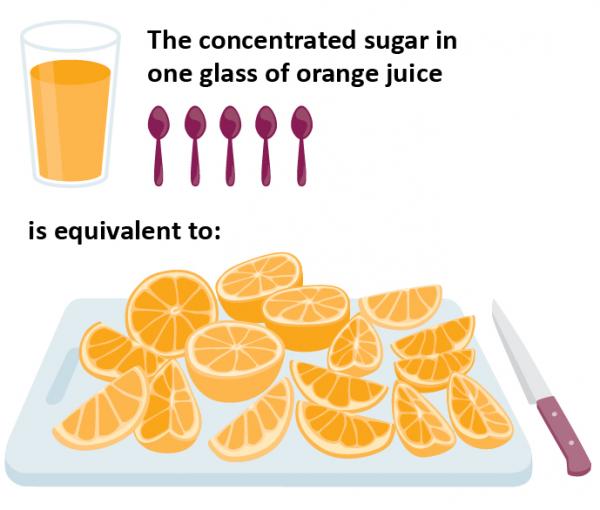Sugar in food
Sugar is a carbohydrate found in natural foods such as fruit, vegetables, honey and milk. Sugar is also used in refined form by manufacturers to sweeten foods and drinks, and for food preservation.
The most common sugars are sucrose, glucose, lactose and fructose. Sucrose is the combined form of glucose and fructose, also called white sugar or table sugar. Lactose is found in dairy products. These sugars all appear in foods and are classified as added, free and intrinsic sugars:
- Added sugars are extracted, concentrated and refined from sources such as sugar cane, fruit, sugar beet, or corn.
- Free sugars include added sugars but also include sugars naturally found in honey, syrups and fruit juices – foods that are usually thought of as ‘sweeteners’.
- Intrinsic sugars are found naturally in the cell structure of foods such as fresh fruit, grains, vegetables and milk.
Foods with high levels of added sugars can greatly increase the energy (calorie) content of foods without providing any other nutritional benefits, as opposed to whole foods with intrinsic sugars that are accompanied by other nutrients, such as dietary fibre, vitamins, and minerals.
The current discussion on negative health effects from sugar is mainly concerned with sugars, such as sucrose, that have been added by food manufacturers. Sucrose (derived from refined sugar cane or sugar beet) and high-fructose corn syrup (derived from corn) are used by food manufacturers for sweetening foods and drinks, for food preservation and for enhancing the flavour of processed foods.
 In New Zealand, sucrose is commonly used to sweeten fizzy drinks and beverages, whereas high-fructose corn syrup is more commonly used in the US food industry. In foods, added sugars are often found in packaged and processed foods, such as sugary and fizzy drinks, breakfast cereals, muesli bars, biscuits, baked products (cakes, tarts, puddings) and cooking sauces.
In New Zealand, sucrose is commonly used to sweeten fizzy drinks and beverages, whereas high-fructose corn syrup is more commonly used in the US food industry. In foods, added sugars are often found in packaged and processed foods, such as sugary and fizzy drinks, breakfast cereals, muesli bars, biscuits, baked products (cakes, tarts, puddings) and cooking sauces.
Examples of other names for sugar that might be found in packaged foods are dextrose, powdered sugar, corn syrup, honey, maltose, molasses, brown sugar, nectars (e.g. peach nectar), invert sugar, malt syrup, coconut sugars, agave syrup, brown rice syrup and maple syrup.
It is easy to over-consume sugar

It is easy to over-consume sugar in juice and sweet drinks, as they contain mostly water and sugar. One glass of orange juice can contain concentrated sugar from five or six whole oranges. And while it is easy to drink that much sugar, you would be less likely to eat that many oranges in one go.
Fizzy drinks do not make you feel full as quickly as foods do. This makes them easy to over-consume. And a small fizzy drink contains nine teaspoons of added sugar, so drinking just one can means that you have almost reached your recommended maximum intake for that whole day.
